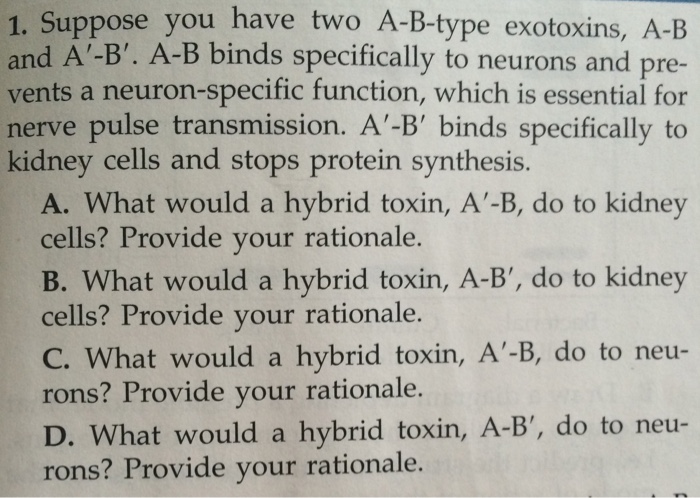Question: Suppose you have two A-B-type exotoxins, A-B and A’-B’. A-B binds specifically to neurons and pre…

Show transcribed image text Suppose you have two A-B-type exotoxins, A-B and A'-B'. A-B binds specifically to neurons and prevents a neuron-specific function, which is essential for nerve pulse transmission. A'-B' binds specifically to kidney cells and stops protein synthesis. What would a hybrid toxin, A'-B, do to kidney cells? Provide your rationale. What would a hybrid toxin, A-B', do to kidney cells? Provide your rationale. What would a hybrid toxin, A'-B, do to neurons? Provide your rationale. D. What would a hybrid toxin, A-B', do to neurons? Provide your rationale.
Suppose you have two A-B-type exotoxins, A-B and A'-B'. A-B binds specifically to neurons and prevents a neuron-specific function, which is essential for nerve pulse transmission. A'-B' binds specifically to kidney cells and stops protein synthesis. What would a hybrid toxin, A'-B, do to kidney cells? Provide your rationale. What would a hybrid toxin, A-B', do to kidney cells? Provide your rationale. What would a hybrid toxin, A'-B, do to neurons? Provide your rationale. D. What would a hybrid toxin, A-B', do to neurons? Provide your rationale.



